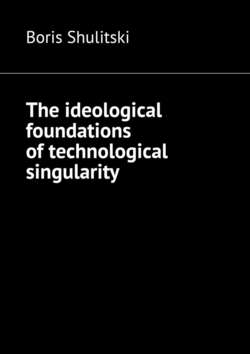Читать книгу The ideological foundations of technological singularity - Boris Shulitski - Страница 2
Preface
ОглавлениеTwo centuries ago, Friedrich Engels emphasized: dialectical materialism must change its form in the course of each new major discovery in natural science. It was evident for him, that scientific philosophy is not a dogma, but if it claims to be a worldview, it must develop and substantially enrich itself both in respect of its form and in content together and in parallel with the scientific progress in science. As the history of the development of the Soviet philosophical school showed, that this was not always the case.
In the former Soviet Union space, philosophy today is experiencing a serious crisis, primarily because of its ignoring of the new reality that has now been formed, which is briefly described by the term “informational society”. Concentrating on the historically established, traditional model of the world cognition – through the binary opposition “matter-consciousness” – still not enough attention is paid to “information” as the third element, forming scientific ideas about objective reality and very significant for a scientific worldview the construction.
Meanwhile, here are found such intensively developed ways of creating information technologies that require reflection, primarily at the worldview, philosophical level, in order to create an adequate methodological basis for scientific research in this area, to provide an adequate understanding of human practice and creativity. It is important for us to understand, comprehend, explore this new perspective from the standpoint of its informational phenomena and give informational concept on the background of the small number of works in this area, thereby partially compensating for the lack of knowledge and ideas that has arisen here, covering the absolute blank that is also called tabula rasa. It is exactly this way, that the research program by B.G. Shulitsky is being developed, moreover, very effectively.
It is important to mention, that the author, unlike other modern research groups and teams looking for new ways, means and methods of cognition through the exploitation of metaphysical ideas, correctly focuses on the need of comprehensive using of dialectical methodology as the leading epistemological line of conceptual development in the scientific search of the third millennium. The book attempts to apply the dialectical methodology in its generalized interpretation, with the involvement of its informational element, which greatly expands its capabilities, providing its effective application in a number of interdisciplinary areas. In particular, it concerns the integrated worldview of applied internetics, where it acquires a new appearance and new functions, further, exploratory research of information-stimulated processes in nanotechnology, as well as in other areas. The author raised a number of fundamental questions. The answers to them have beenyet received by neither science nor philosophy, but these questions are of undoubted interest for interdisciplinary complex analysis and synthesis.
.
Doctor of Philosophy, Leading Researcher of the Institute of Philosophy of the National Academy of Sciences of Belarus
E. M. Soroko
